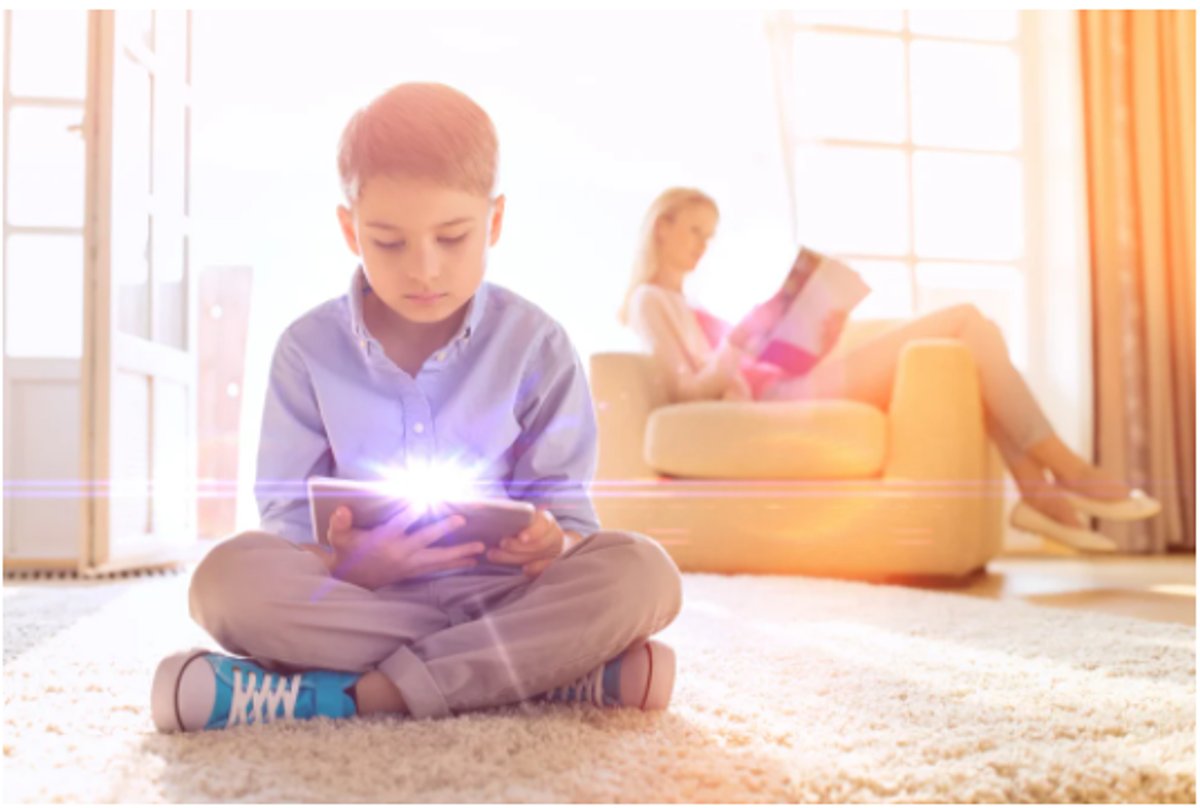Cyber Safety

Reading is reading ... isn't it?
Whether it's digital text on a screen, or print in a book - literacy is literacy, right?
Wrong, says a leading literacy expert. What’s more, too much screen-based learning can create developmental imbalances we never anticipated.
Are you really going to read this blog word for word? Or are you much more likely to skim it, looking for ideas that, for whatever reason, resonate with you?
Will you resist distraction while you read this? Or are you likely to have your attention pulled away - to jump to another open tab, or simply switch your focus to what’s happening in the room around you?
Reading ain't reading
You don’t need to be a literacy researcher to have a pretty good hunch about the answers. You know from your own experience that reading ain’t reading.
You may well have noticed that you find it harder and harder to concentrate on a novel or other full-length text. You’re grown used to snacking on bits and pieces of prose, rather than consuming big, meaty chunks of it.
Think about it. If this is happening for you - you, who spent your formative years reading and learning from books - what exactly is happening for your digital children?
UCLA Professor Maryanne Wolf, a leading expert in the field of literacy research, studies these questions scientifically - and the results are sounding alarm bells for educators and parents alike.
To skim, or not to skim?
“To skim to inform,” Wolf points out, is the new normal for readers of all ages. And when deep reading goes missing, so does the opportunity for deep learning, “connecting background knowledge to new information, making analogies, drawing inferences, examining truth value” and thinking critically about what we read.
“Literacy literally changes the human brain. The process of learning to read changes our brain, but so does what we read, how we read and on what we read” - whether a book or journal, e-reader, phone or computer."
Other research has found declines in student comprehension when the same material is read on-screen instead of in print. Yet students themselves believed they read better on screens - because they were faster.
“Even three-year-olds appear less able to deal with more abstract material when listening to stories on screens versus books,” notes Wolf.
So screen-based reading is bad?
So is screen-based literacy “bad” and print-based literacy “good”? Not at all, says Wolf. Instead, she argues, “The great challenge now is to learn how to use both print and digital mediums to their best advantage for all.” Our children’s brains are already “biliterate” - meaning they’ve been trained to handle both types of literacy. And that’s an exciting development … potentially.
That said, Wolf believes it is essential that screens don’t displace books. “As a society we must ensure that there are always books next to our children’s digital devices.” And in our children’s bedrooms, books should be the only reading options.
One thing is clear. “Literacy literally changes the human brain. The process of learning to read changes our brain, but so does what we read, how we read and on what we read” - whether a book or journal, e-reader, phone or computer.
Reference: https://www.familyzone.com/anz/families/blog/reading-is-reading-isnt-it

